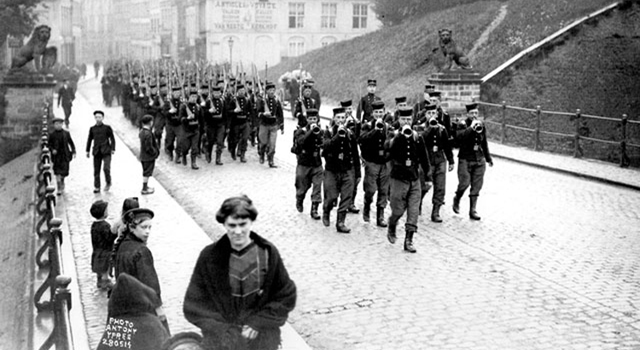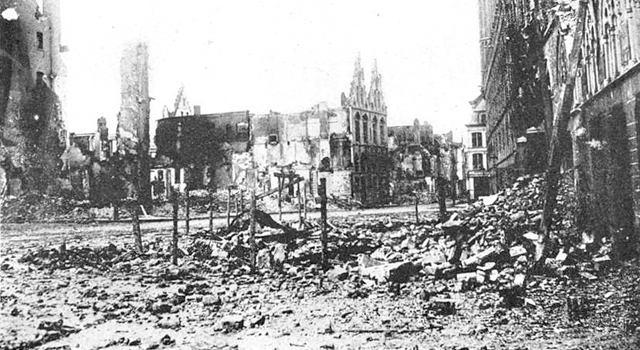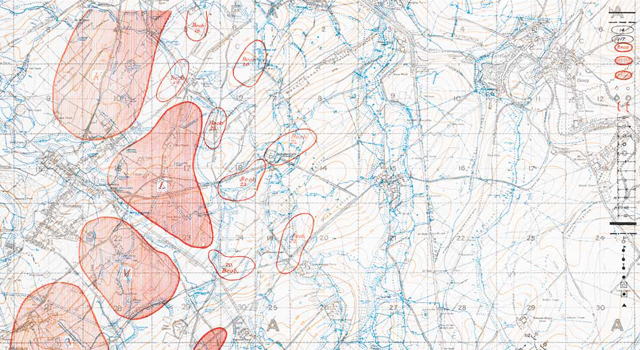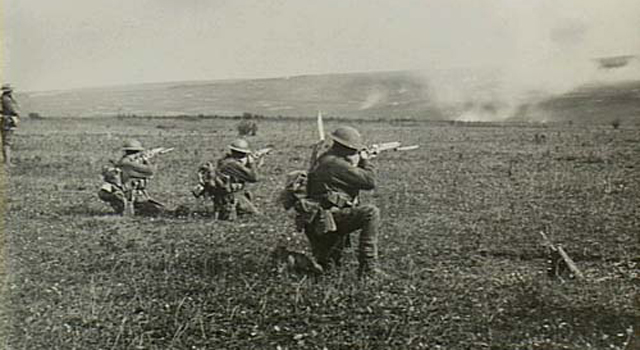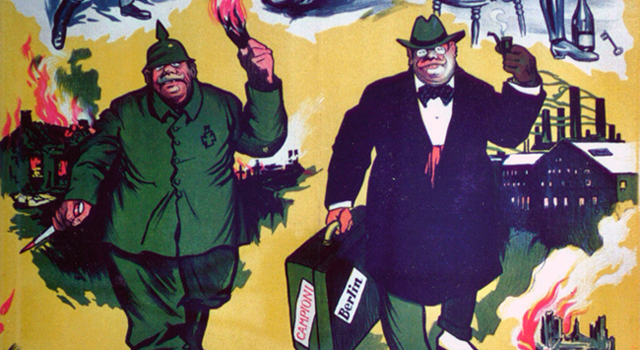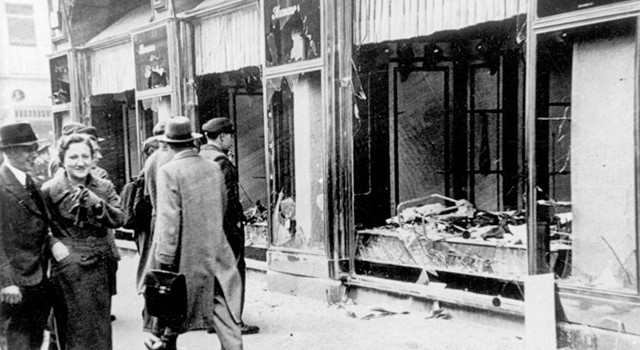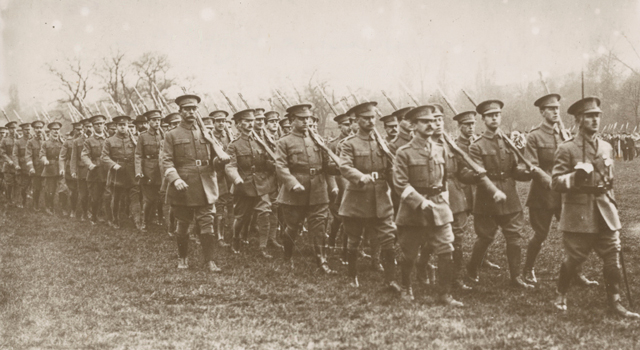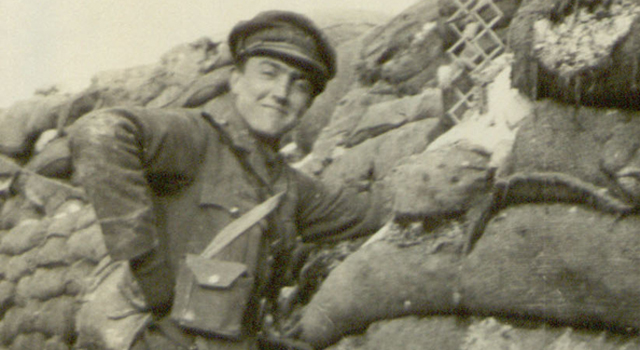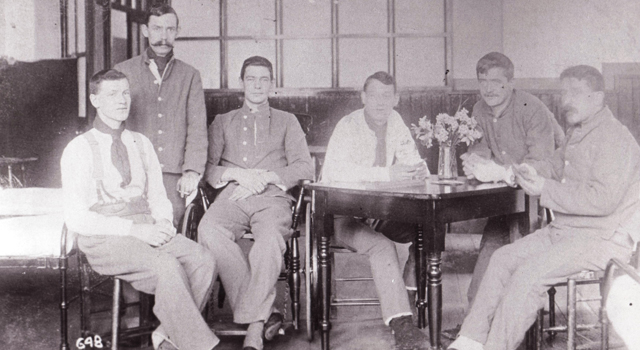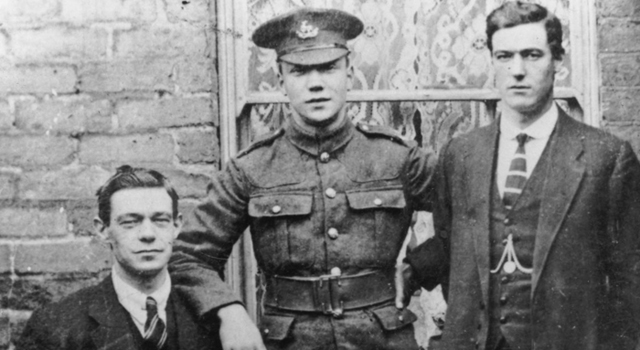Articles
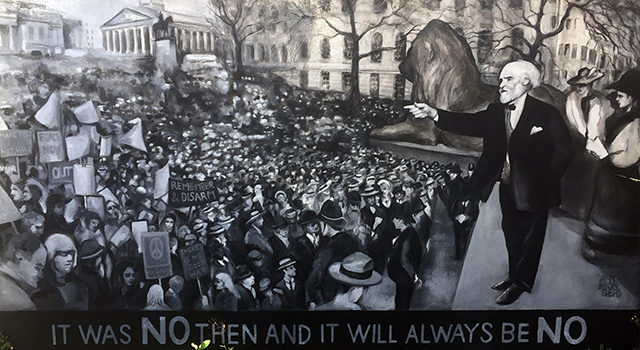
One Comment
By Voices
On 02, Oct 2018 | One Comment | In Belief | By Voices
War is not the Answer: The Peace Pledge Union and the Great War
Chris Hill, Birmingham City University
For the Peace Pledge Union (PPU), established in 1934 by Reverend Dick Shepherd, the Great War occupies a prominent position in its institutional history and memory.
Read more…
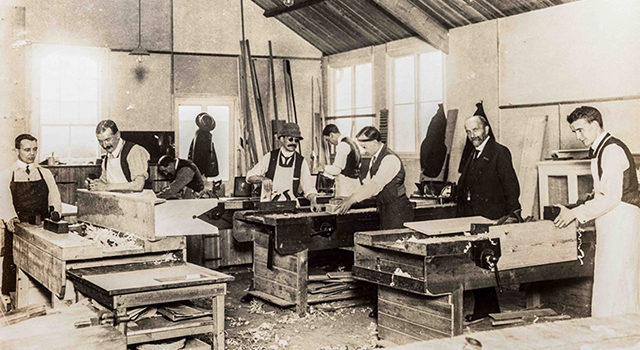
No Comments
By Voices
On 07, Aug 2018 | No Comments | In Cities | By Voices
Improvements in Welfare of the Blind
Niall Herbert, University of Worcester
Improvements to welfare and support of the blind in Britain were accelerated by the First World War and the number of servicemen blinded by gas attacks. Read more…
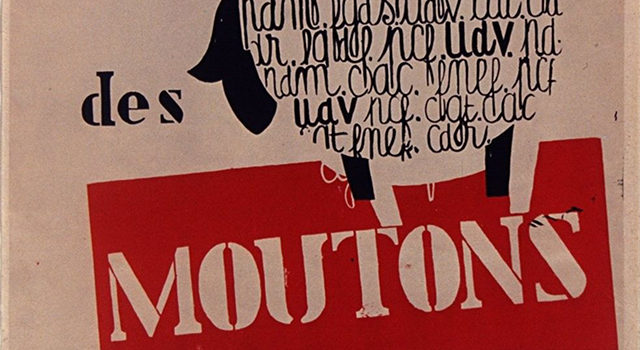
No Comments
By Voices
On 02, Jul 2018 | No Comments | In Commemoration | By Voices
‘La Guerre des Moutons’: Remembering 1918 from 1968
Chris Hill, Birmingham City University
This year marks not only the centenary of the end of the First World War, but also the fiftieth anniversary of 1968, a year known for anti-war protests and student rebellions worldwide. From the perspective of 2018, then, the question of how 1918 was remembered during the Vietnam War and the ‘year of the barricades’ seems a compelling one.
Read more…
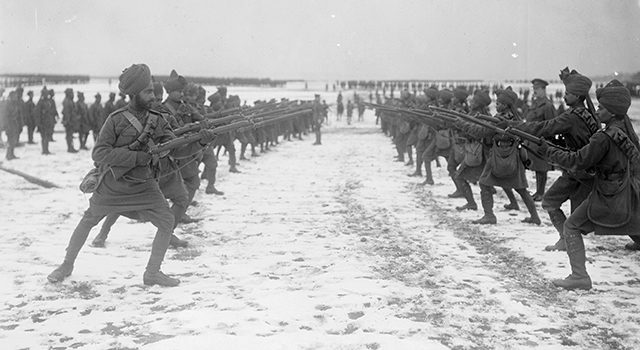
No Comments
By Voices
On 29, May 2018 | No Comments | In Commemoration | By Voices
‘Lest we Forget’: Muslim Service in the Great War
Chris Hill, Birmingham City University
‘Stories of Sacrifice’, an exhibition run by the British Muslim Heritage Centre about Muslim service in the First World War, was met with a note of surprise by visiting Muslims from across the UK.
Read more…
One Comment
By Voices
On 14, Jun 2017 | One Comment | In Gender | By Voices
‘Girls Who Would Fight’: Young Women and the Call to Arms
Marcus Morris, MMU
At the outbreak of the First World War, Britain’s army compared to those on the continent was small, with hundreds of thousands of men required to successfully prosecute the war. Hoping to exploit perceived (if debated) ‘war-fever’ in the country a campaign for volunteers was launched. Read more…
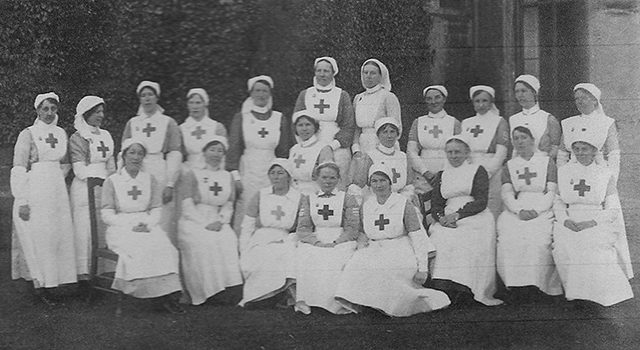
No Comments
By Voices
On 28, Feb 2017 | No Comments | In Gender | By Voices
The Volunteering Women of Worcestershire
Alice Edwards, University of Worcester
When it was announced that Britain would be going to war in 1914, the lives of those on the home front changed. Communities looked to women of middle and upper class to organise charitable events, support the Red Cross, the National Egg Collection, the National Relief Fund or one of the other 18,000 charities set up during the conflict.
No Comments
By Voices
On 27, Jan 2017 | No Comments | In Belief Frontline | By Voices
From Flanders to Helmand: a study of chaplaincy and change in the British Army, 1914-2014
Canon Professor Michael Snape, Durham University, and Dr Victoria Henshaw, University of Birmingham
This article examines questions of continuity and change in the religious experience of armed conflict, taking as its subjects the chaplains of the British Expeditionary Force (or B.E.F.) in France and Belgium between 1914 and 1918, and the mainly British component of Task Force Helmand (or T.F.H.) between 2006 and 2014. Drawing on evidence from both periods, including specially donated manuscript material and twenty-nine interviews with serving army chaplains, all of whom are veterans of Helmand, its findings reveal a remarkable degree of continuity between the experiences of chaplains in two very different operational contexts.
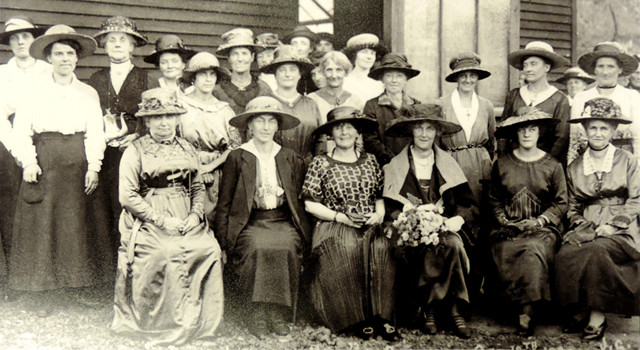
No Comments
By Voices
On 02, Mar 2016 | No Comments | In Gender | By Voices
Not Just Jam and Jerusalem: Pershore Women’s Institute
Professor Maggie Andrews, University of Worcester
The greatest legacy of the First World War for rural woman was the Women’s Institute Movement in Britain.
3 Comments
By Voices
On 10, Feb 2016 | 3 Comments | In Cities | By Voices
Refugee Relief during the First World War
Belgian Refugees in Birmingham (1914-1919)
Jolien De Vuyst, Ghent University
‘Black is typical of the terrible days through which our country is passing, and the depth of sorrow into which we have been plunged; red, is the blood that has been shed; but golden is the kindness of the British people, and never can the Belgians forget the generosity and warmth of their reception’. Belgian refugee priest, referring to the colours of the Belgian flag. (War Refugees’ Committee, 1914)
No Comments
By Voices
On 23, Dec 2015 | No Comments | In Frontline | By Voices
Harsh Realities: The British Army and the Problem of 1915
Dr Spencer Jones, University of Wolverhampton
At the beginning of 1915 Great Britain found herself locked into a major European war for the first time in over a century. This was a situation for which the country was not strategically, militarily, economically or psychologically prepared.
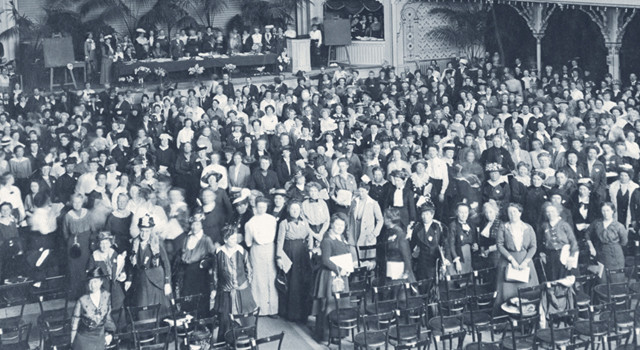
No Comments
By Voices
On 09, Dec 2015 | No Comments | In Gender | By Voices
These Dangerous Women
Charlotte Bill, Clapham Film Unit
“My sister needs a film”, my contact said to me in a Community Resource basement on Brixton Hill.
“What’s the story?”
“These women in 1915 got together to try to stop World War 1.”
No Comments
By Voices
On 11, Nov 2015 | No Comments | In Childhood | By Voices
Children in Wartime: The Effect of War on School Children in Pershore and the Surrounding District
Emily Linney, University of Worcester
The First World War changed the lives of many on the home front; an examination of the school logbooks and contemporary newspapers relating to Pershore, in Worcestershire, demonstrates that this conflict affected the everyday lives of even small people.
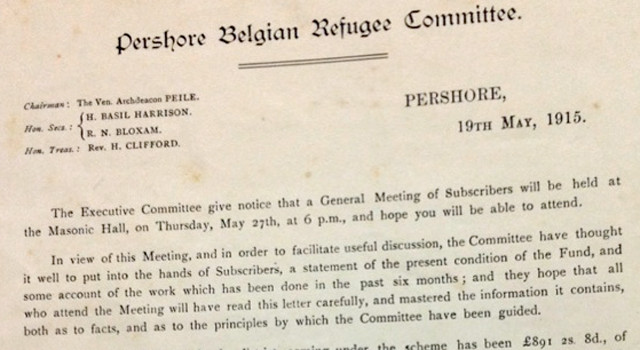
No Comments
By Voices
On 28, Oct 2015 | No Comments | In Cities | By Voices
Belgium Refugees in Pershore and Evesham
Emily Linney, University of Worcester
Between the months of September and December 1914, 250,000 Belgium refugees entered Britain fleeing the German invasion of their homeland; this was the largest flood of people into Britain to date.
One Comment
By Voices
On 07, Oct 2015 | One Comment | In Commemoration | By Voices
Memento to Memorial: Leicester’s War Memorial Journey
Dr Emma Login, University of Birmingham
When we think of First World War memorials, we may imagine great stone monuments such as the Cenotaph in London or Thiepval on the Somme, France. Yet, these structures frequently took many years to build, and for those with loved ones fighting overseas, and especially for the bereaved, a more immediate and localised response was necessary. As a result, communities constructed countless war memorial shrines in towns and villages throughout the United Kingdom. Read more…
2 Comments
By Voices
On 16, Sep 2015 | 2 Comments | In Gender | By Voices
Women Doctors in the First World War
Dr Martha Jane Moody Stewart in Worcester and Beyond
Dr Rebecca Wynter, University of Birmingham
Dr Martha Jane Moody Stewart was in 1915 the first female House Surgeon at Worcester Infirmary. Local records seemed to offer little more to the Worcestershire World War 100 (WWW100) volunteer researchers. They found she had graduated from Queen’s University, Belfast, and that she left Worcester soon after arriving. An old local history book implied (rather bluntly) that in wartime circumstances the hospital was ‘forced’ to employ a woman doctor, but made no mention as to the reasons for her swift departure.
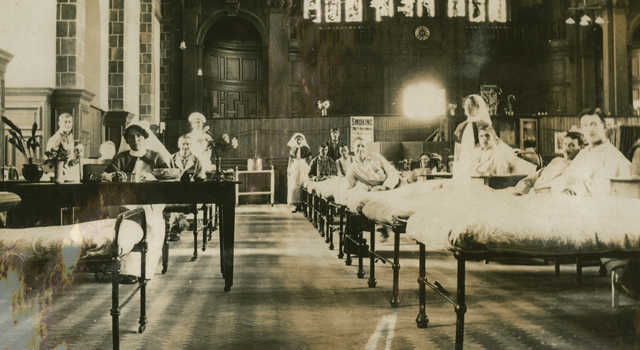
No Comments
By Voices
On 17, Aug 2015 | No Comments | In Cities | By Voices
The Role of Sphagnum Moss in the Great War
Adrian Blackledge, University of Birmingham
During the Great War sphagnum moss played an important part as a substitute for cotton gauze dressings, as it was found to absorb liquids about three times more quickly than cotton, retain liquids much better, and distribute the liquids more uniformly. It was cooler, softer, and less irritating than cotton, and could be produced more rapidly and more cheaply.
No Comments
By Voices
On 03, Aug 2015 | No Comments | In Belief | By Voices
Glasgow University’s Great War: Chaplains and Theology Students
Alicia Henneberry, postgraduate student
Theology and Religious Studies, University of Glasgow
The Glasgow University Great War Project is remembering the many men who fought and died bravely on the front lines in World War I. For this particular facet of the project, I focused on an aspect of this war that took place much closer to home for those of us on the University of Glasgow campus. I endeavoured to uncover aspects of the lives of those who studied and served from the University of Glasgow’s Divinity Faculty – the Chaplains and Theology Students of World War I. Read more…
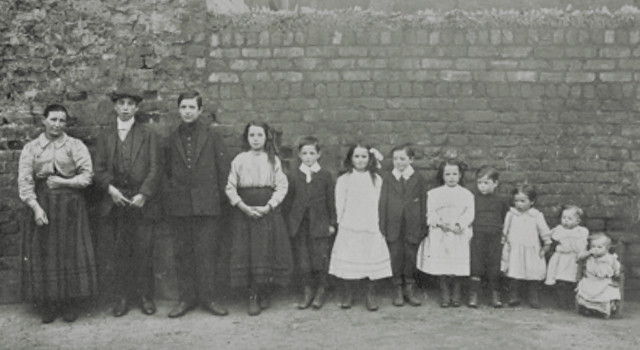
No Comments
By Voices
On 20, Jul 2015 | No Comments | In Gender | By Voices
Mothers First! The Women’s Co-operative Guild’s Maternity Letters
Ruth Cohen, Independent Researcher
The Women’s Co-operative Guild is most remembered for its poignant collection, ‘Maternity: letters from working women’, first published in 1915. By then, it was a unique campaigning organisation with over 32,000 members, mostly married women from better off sections of the working class. Read more…
No Comments
By Voices
On 06, Jul 2015 | No Comments | In Frontline | By Voices
Archibald Allan Bowman’s war experience
Dr Jennifer Novotny, University of Glasgow
The First World War centenary is a time to reflect upon those individuals whose lives were forever impacted by the events of 1914-18. While there is a strong emphasis on remembering those who died, it is equally important to consider those who survived to become the living legacy of conflict.
One Comment
By Voices
On 22, Jun 2015 | One Comment | In Commemoration | By Voices
Shot at Dawn- Lest We Forget
Central Youth Theatre
Shot at Dawn- Lest we Forget is a Heritage Lottery funded project, by the Central Youth Theatre, that focuses on soldiers who were executed for desertion and “cowardice” during the First World War.
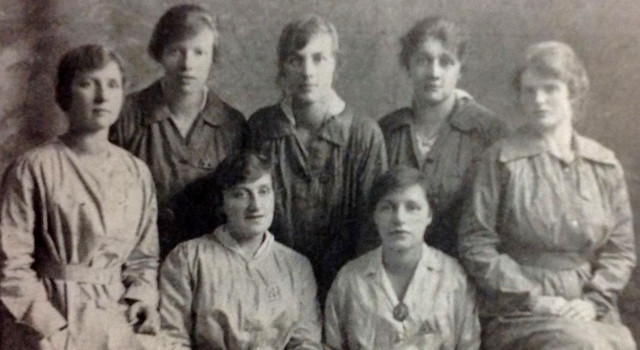
No Comments
By Voices
On 25, May 2015 | No Comments | In Gender | By Voices
Women Munitions Workers and the Trade Unions
Cathy Hunt, Coventry University
The women who went into Britain’s munitions factories during the First World War were encouraged and praised in their endeavours to ensure that the men at the Front were kept supplied with the weapons and military equipment that were so vital to the war effort.
One Comment
By Voices
On 18, May 2015 | One Comment | In Commemoration | By Voices
Connections between Great Wars; 1793-1815 and 1914-1919
Nick Mansfield, Senior Research Fellow in History, University of Central Lancashire
Britain has embarked on a massive public history jamboree to commemorate the centenary of the First World War. Its overwhelming storyline is emotive, which I suspect that the citizen soldiers who I knew as a boy, particularly those rural representatives that I Interviewed in the 1980s, would have found distasteful [1].
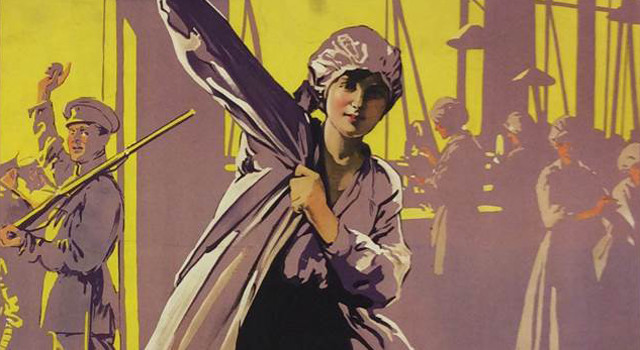
No Comments
By Voices
On 11, May 2015 | No Comments | In Gender | By Voices
Labour Unrest Amongst First World War Female Workers
Chris Day and Vicky Iglikowski, The National Archives
There is a distinct image of female munitions workers during the First World War which occupies perhaps the most prominent place in Britain’s collective memory; the patriotic women who, though jaundiced and slowly poisoned, were proud to be doing ‘their bit’ and eager to take advantage of the new world of employment offered to them by the war.
No Comments
By Voices
On 20, Apr 2015 | No Comments | In Commemoration | By Voices
‘Remembering World War One’ Module
Anna Young, Assistant Curator
Research & Cultural Collections, University of Birmingham
During the first week of spring term, Research and Cultural Collections welcomed students from the first cohort of the new English module, Remembering World War One. This module is set to run for the duration of the commemorative period and is designed to introduce students to the shock of the war – its historical, cultural and psychological enormity and incomprehensibility – as it was expressed by writers who experienced it and lived through its aftermath. Read more…
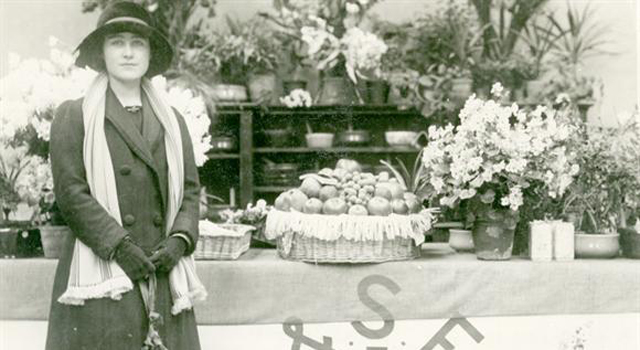
No Comments
By Voices
On 23, Mar 2015 | No Comments | In Cities | By Voices
The Soldiers’ and Sailors’ Families Association, County Dublin Division, 1914: a case study
Paul Huddie, Queen’s University Belfast
One prominent feature of the British home front campaign of the Great War was the boom in wartime charities. So great was the expansion of charitable (or allegedly charitable) endeavours during and after 1914 that the War Charities Act 1916 had to be passed in order to regulate them. However before that great charitable rage took place, at the outbreak of the war, a number of such organisations were already well-established. One such charity was the Soldiers’ and Sailors’ Families’ Association (SSFA).
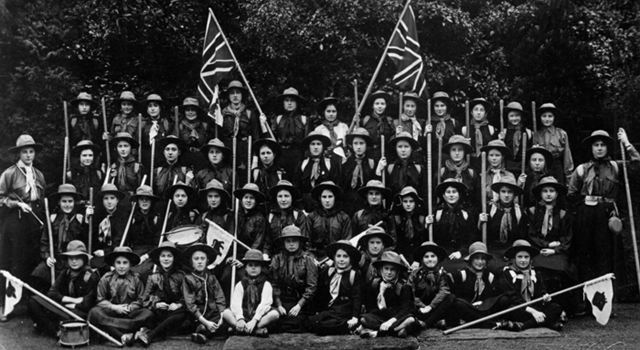
One Comment
By Voices
On 09, Mar 2015 | One Comment | In Gender | By Voices
Girl Guides: Gender and Childhood on the Home Front
Professor Maggie Andrews, University of Worcester
The Girl Guides Association, having been formed in 1910, was still a fledging organisation when the war broke out. The activities that Guides became involved in over the four years of war demonstrate both that life on the Home Front was a gender specific experience and the range of contributions that children made to the war effort.
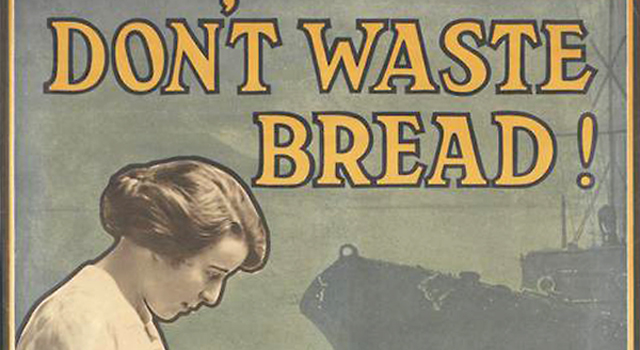
No Comments
By Voices
On 23, Feb 2015 | No Comments | In Gender | By Voices
Sophie Carey and the National Food Fund
Dr Katherine Storr
When the First World War began new charitable funds proliferated and many were started by women. Goods-in-kind, such as clothes and food were collected and distributed as well as money. Food is a weapon of war and Britain was vulnerable due to its reliance on imports.
No Comments
By Voices
On 02, Feb 2015 | No Comments | In Commemoration | By Voices
Exhibiting the Great War in 2014
Prof Ian Grosvenor, University of Birmingham
Across Europe and beyond in 2014 the Great War took up residence in museums, art galleries and libraries, with exhibitions presenting the conflict through a national lens.
Exhibitions to be discussed here are Paris 14-18, la guerre au quotidien, a photographic exhibition at the Galerie des bibliothéques de la Ville de Paris, 1914-1918 Der Erste WeltKrieg at the Deutsches Historisches Museum in Berlin, and Life Interrupted: Personal Diaries from World War I at the State Library of New South Wales, Australia.
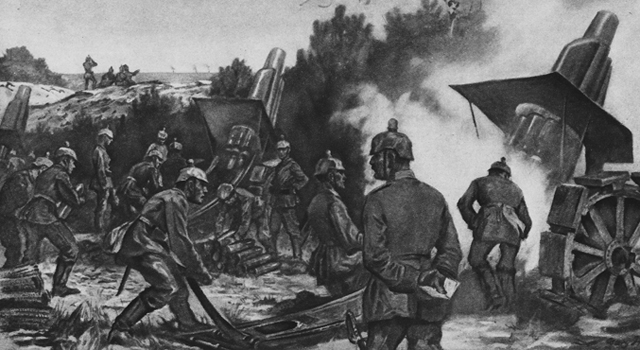
12 Comments
By Voices
On 25, Nov 2014 | 12 Comments | In Frontline | By Voices
The Recapture of Gheluvelt, 31 October 1914
Dr Spencer Jones, University of Wolverhampton
The First Battle of Ypres
In October 1914 the British Expeditionary Force (BEF) was locked into a battle for survival. Fighting alongside her French and Belgian allies, the British Army sought to hold off a massive German offensive that aimed to capture the last sliver of unoccupied Belgium before driving onwards towards the strategically vital Channel ports of Dunkirk and Calais.
No Comments
By Voices
On 17, Nov 2014 | No Comments | In Childhood | By Voices
The Silenced War
Fiction for Children across World War One
Prof Jean Webb, University of Worcester
The attitudes toward warfare in Britain leading up to World War I were deeply rooted in nineteenth-century notions of masculinity embedded in adventure stories for boys and therefore, by polar opposition, in the domestic construction of the feminine. Read more…
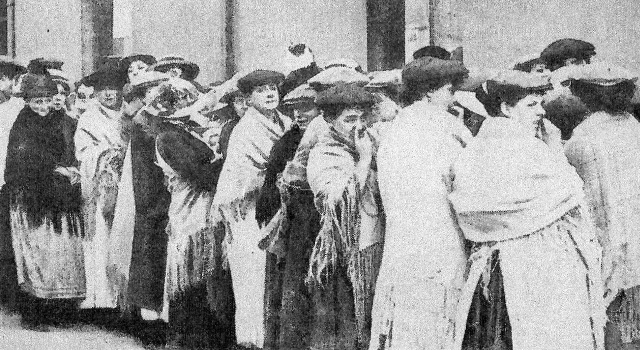
No Comments
By Voices
On 10, Nov 2014 | No Comments | In Gender | By Voices
The Women Left Behind
Soldiers’ Widows in First World War Britain
Dr Janis Lomas
The 31st of October 2014 is the centenary of the Battle of Gheluvelt, which has an almost mythical status in Worcestershire. Given the high casualty rate it is worth also considering the provisions that the British government put in place to provide for the families of men fighting in the First World War.
One Comment
By Voices
On 03, Nov 2014 | One Comment | In Cities | By Voices
Manchester’s Voices of Peace
Marcus Morris, Manchester Metropolitan University
Patriotic rallies, songs and flag waving, along with long lines of men volunteering to fight, are images that we traditionally associate with the outbreak of war in August 1914. A patriotic fervour and war fever seemingly gripped the nation, with whole cities turning out to cheer on their boys and show their support for Britain’s war effort. Yet this was by no means the only response to the growing threat of war or upon its outbreak, even if we are much less familiar with these images. Read more…
No Comments
By Voices
On 13, Oct 2014 | No Comments | In Cities | By Voices
Zeppelin Raids
Carl Chinn
On January 31, 1916, in the second year of the Great War, nine airships left their bases in Germany with orders to bomb Liverpool and in so doing shock the British by the long- range of the attack. The year before zeppelins had raided London, but it was considered impossible for them to reach as far north as Merseyside. As it was the enemy did not make their target. Instead they dropped their bombs on several English towns mostly in the Midlands. Chief amongst them were Tipton, Wednesbury and Walsall in Staffordshire.
No Comments
By Voices
On 06, Oct 2014 | No Comments | In Commemoration | By Voices
Menin Road and Remembrance
Carl Chinn
Ypres is a place that has seared itself into both the collective soul and the communal memory of the British people. An historic cloth town lying in the flat landscape of northern Flanders, it has come to symbolise the sacrifice of a generation of young men in the Great War. This metamorphosis of Ypres into a focal point of remembrance began in mid October 1914 when the area was overwhelmed by bloody fighting as the Germans strove to end the war quickly in a ‘race to the sea’. Their aim was to capture the Channel Ports and thus cut off the British Expeditionary Force from reinforcements and supplies from England.
No Comments
By Voices
On 29, Sep 2014 | No Comments | In Cities | By Voices
Breaking the Hindenburg Line
Carl Chinn
Is it something deep in the English national soul, that fascination with valiant defeat in battle? It is a trait bound up inextricably with others such as doggedness in the face of superior odds; a determination not to bow down to an aggressor, no matter how mighty he may be; a resolve to stay loyal to our pals and not abandon them when endangered; and a refusal to cry for quarter even when outnumbered and facing certain death.
No Comments
By Voices
On 22, Sep 2014 | No Comments | In Cities | By Voices
Rounding on the Germans
Chris Upton, Newman University, Birmingham
Kristallnacht – the Night of Broken Glass – was that fateful 24 hours in November 1938 when the German people (some of them, at least) turned on their Jewish neighbours. Families who had lived peaceably next door to each other for years became divided forever.
Such can be the effects of war and politics, and their handmaidens propaganda and hatred.
2 Comments
By Voices
On 15, Sep 2014 | 2 Comments | In Cities | By Voices
The Fighting Warwicks and South Staffs
Carl Chinn
A heavy haze overlaid the Somme Valley early on July 1, 1916, but as the morning strengthened so the mist vanished. The clear sky beckoned the sun, which waxed in strength as the hours went on. After a week of thunderstorms, heavy rain, cloud and high winds, at last it looked set for a fine day of weather. A fine day that would become ingrained in the consciousness of the British people as the worst of days; a fine day that would witness the deaths of tens of thousands of fine men; a fine day when the youth of whole towns and districts were slaughtered; a fine day that became a bloody, tragic and shocking day from which so many families would never recover.
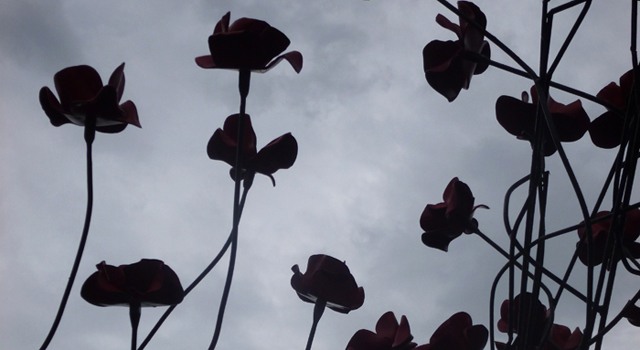
No Comments
By Voices
On 08, Sep 2014 | No Comments | In Commemoration | By Voices
Why Remember?
Chloe Howard, University of Birmingham
As an undergraduate student at the University of Birmingham, I have been working with Historic Royal Palaces to assess people’s attitudes towards remembrance of the First World War and the importance of the centenary this year.
Standing against the backdrop of The Tower of London’s magnificent ‘Blood swept lands and seas of red’ poppy installation, I spent a week asking members of the public to fill in a postcard questionnaire. Read more…
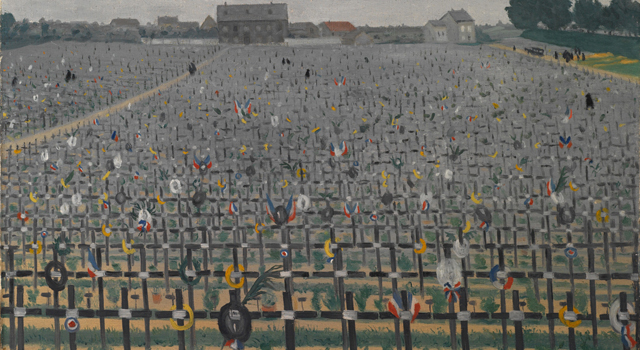
No Comments
By Voices
On 01, Sep 2014 | No Comments | In Commemoration | By Voices
Happy Anniversary?
Measuring the Impact, Legacy and Success of Anniversary Events
Dr Joanne Sayner
It is now expected that academics and museum professionals should reflect on the impact of work they have done. But how is such impact to be measured? How can we judge whether an event has been successful? This was the focus of a workshop recently held at Hampton Court Palace and attended by 81 delegates from a variety of institutions including those representing Government, academia, museums and heritage organisations, archives, and funding bodies. Read more…
11 Comments
By Voices
On 25, Aug 2014 | 11 Comments | In Cities | By Voices
Old Contemptibles
Carl Chinn
The Kaiser was certain that his great army would sweep in to the sea that small force of British soldiers sent to help the French when war with Germany broke out on August 4, 1914. So sneering was he of the British Expeditionary Force that he commanded his forces to ‘exterminate first the treacherous English and walk over General French’s contemptible little army’.


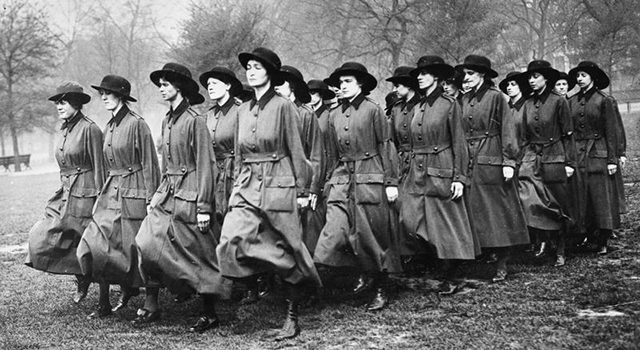
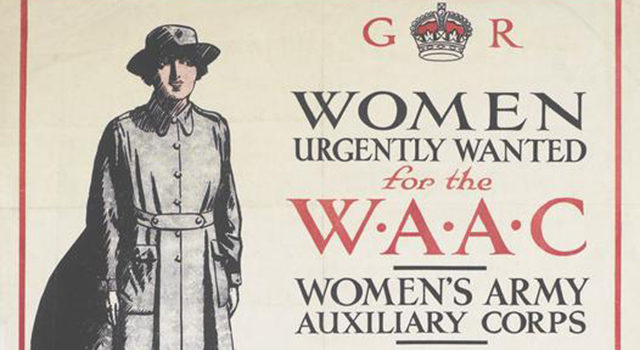
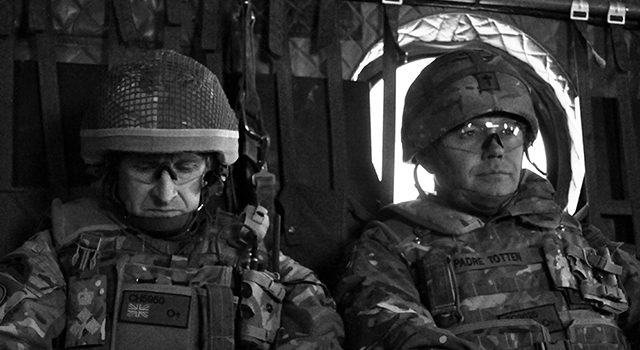
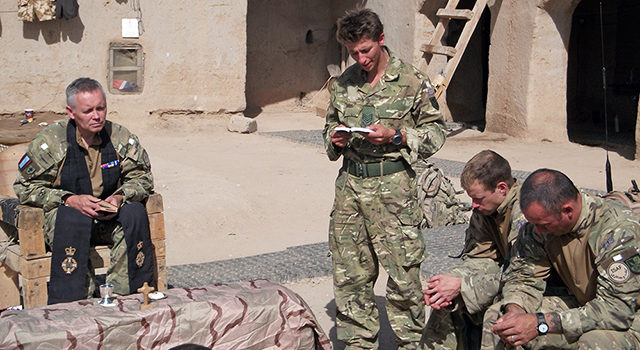
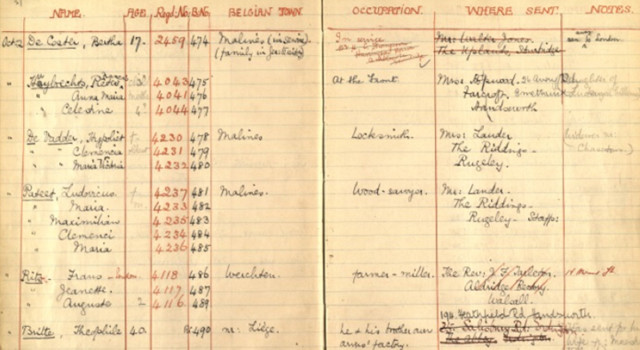
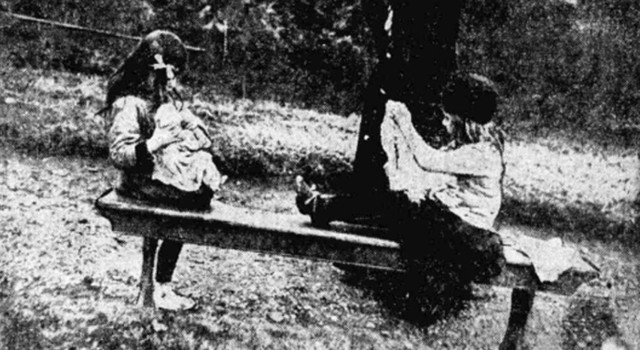
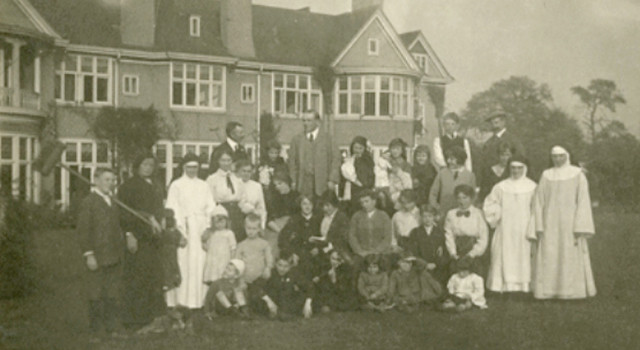
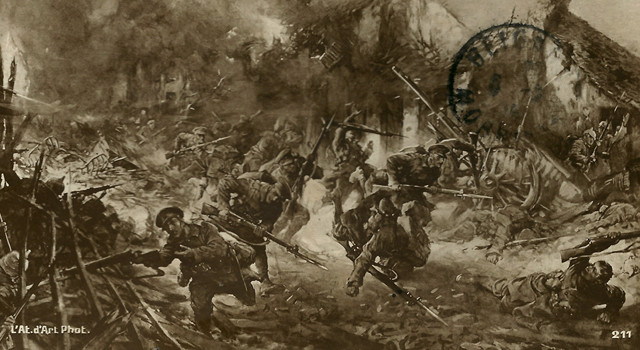
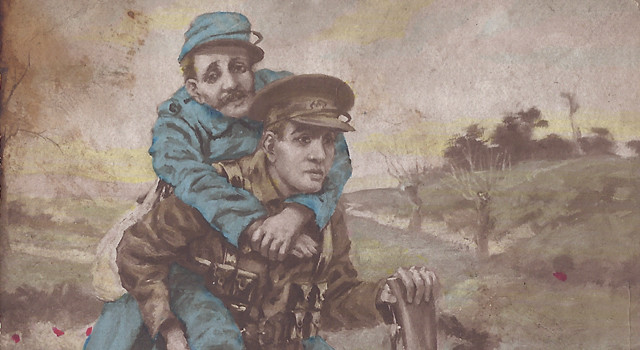
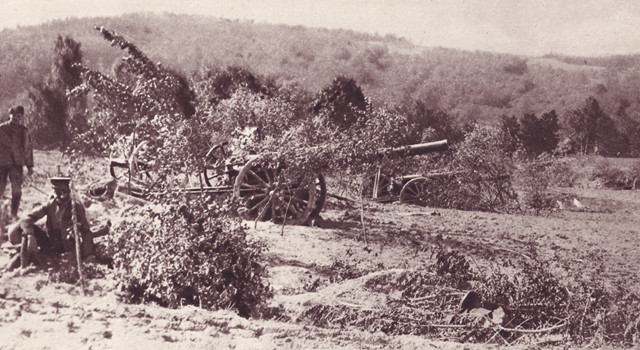
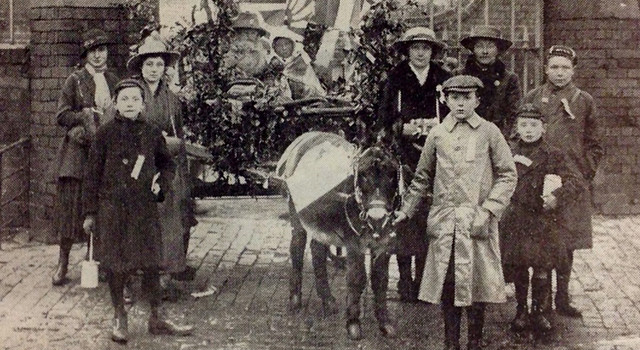
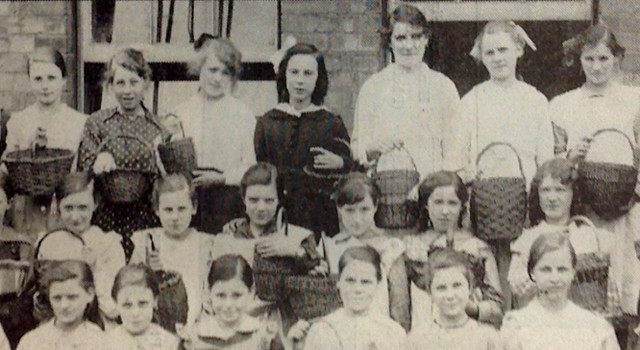
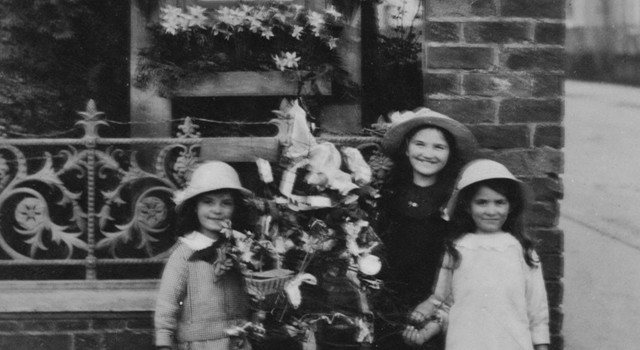
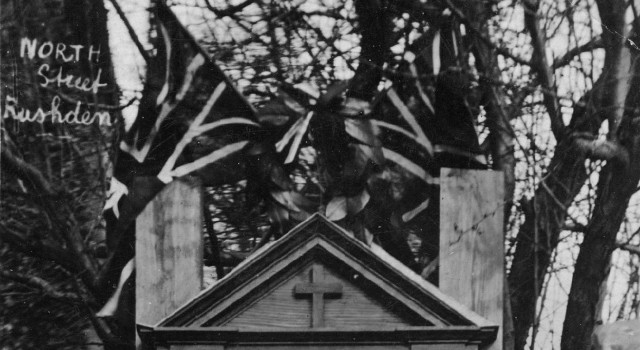
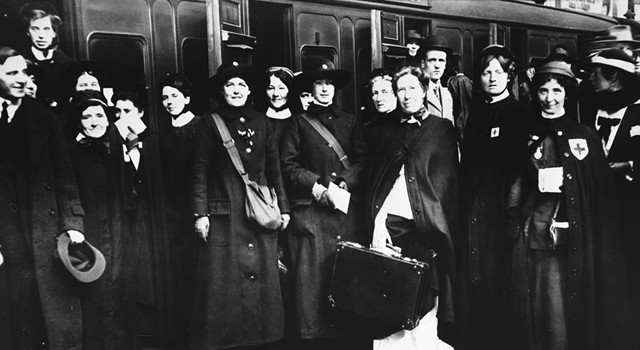
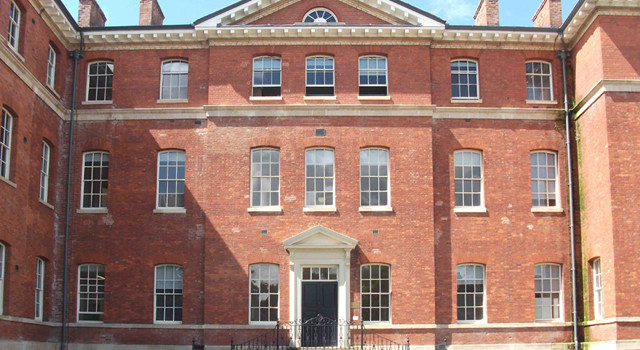
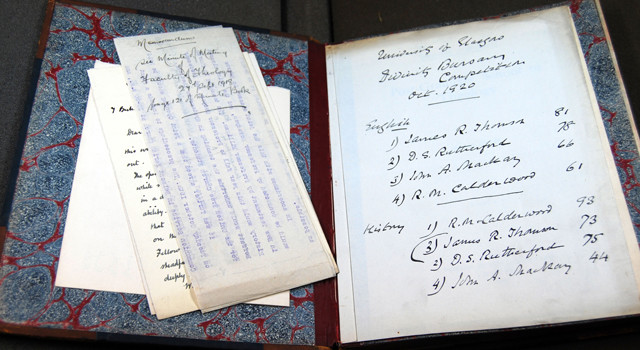
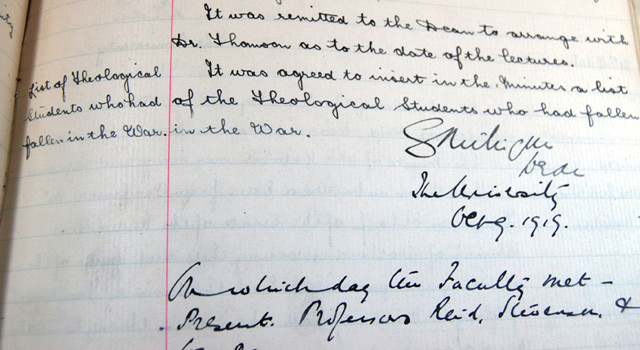
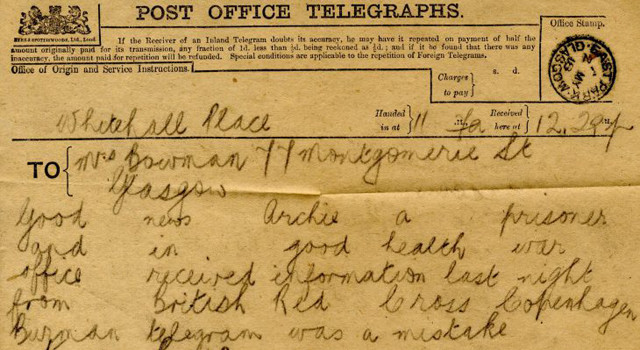
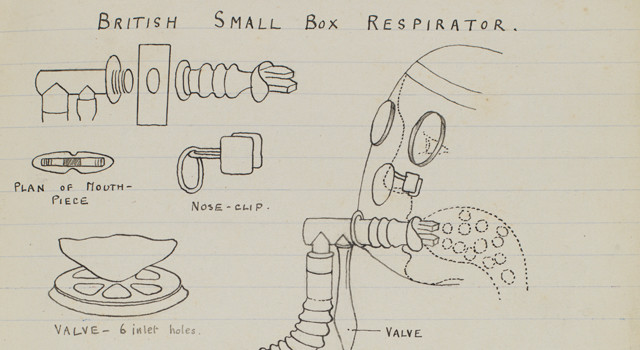
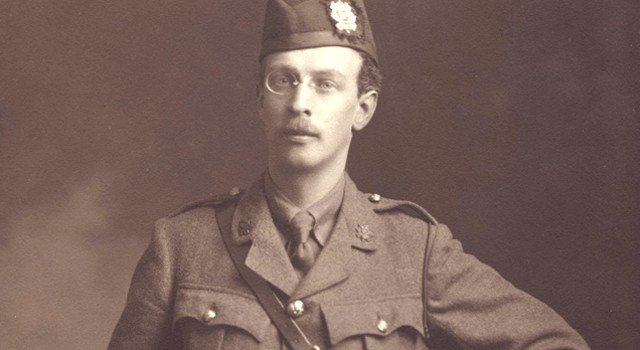
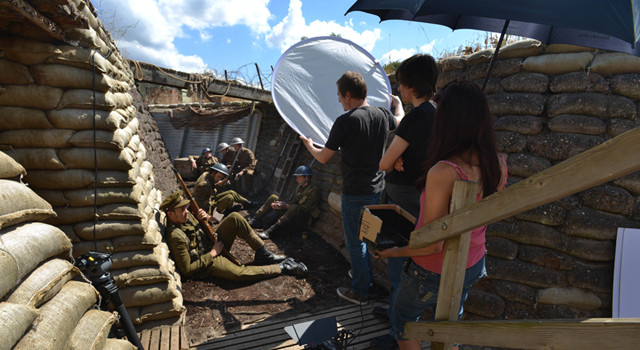
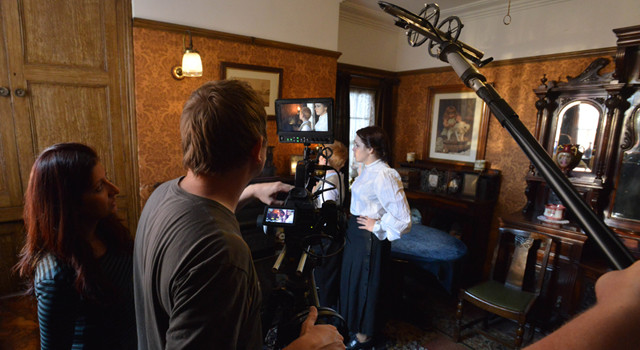
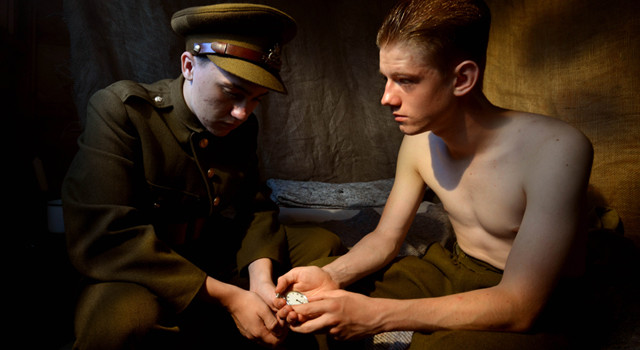
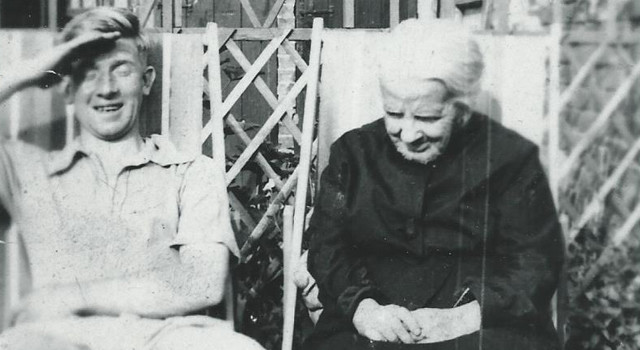
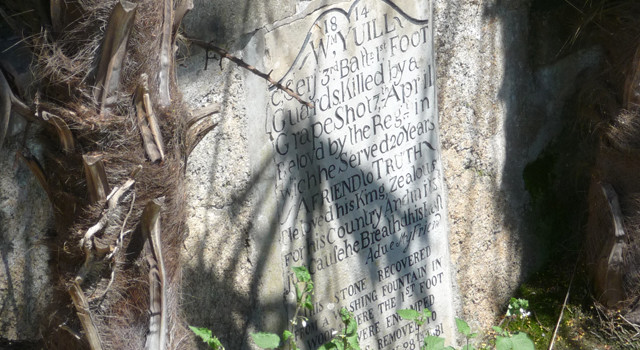
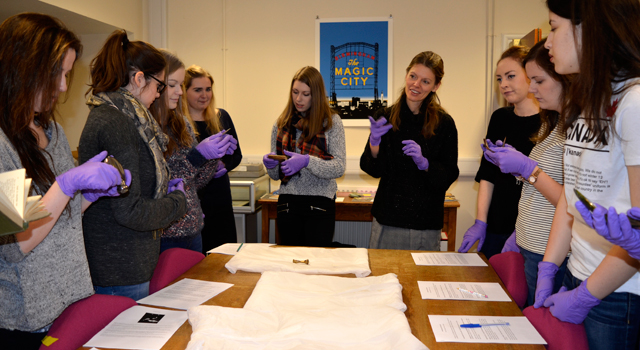
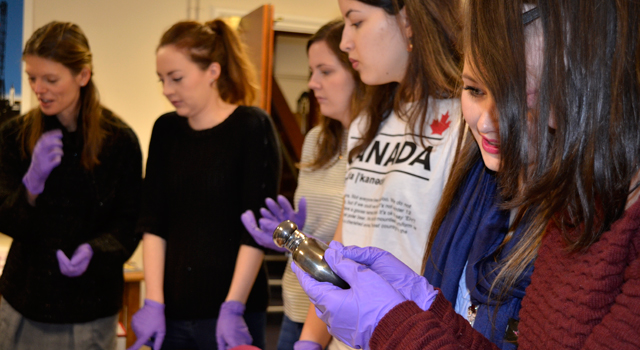
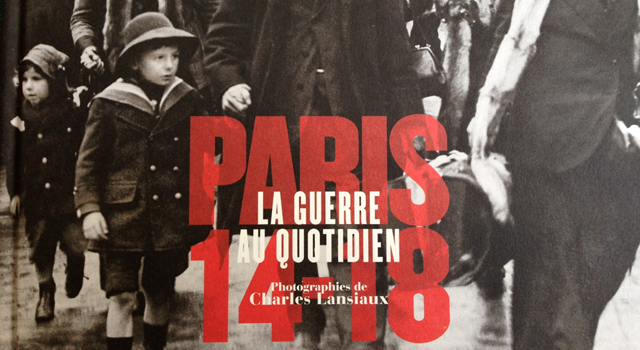
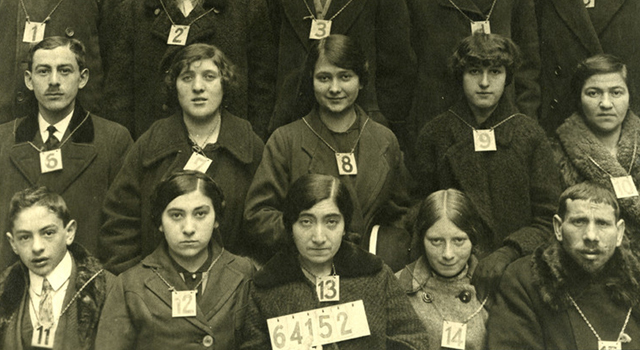

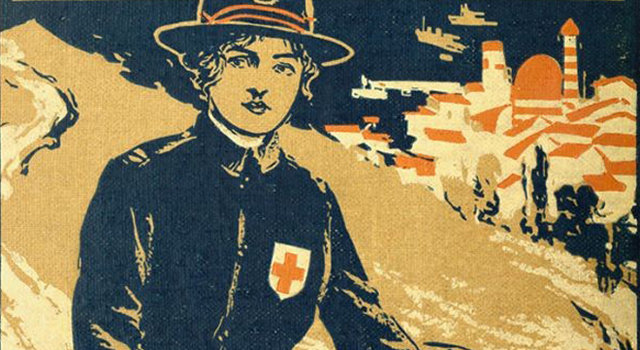
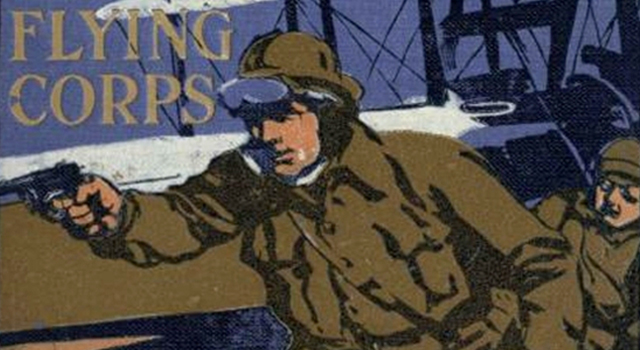
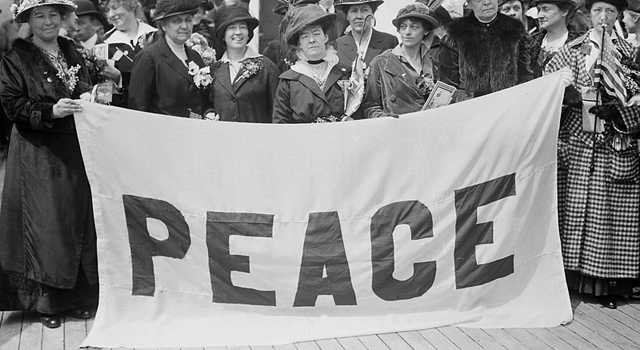
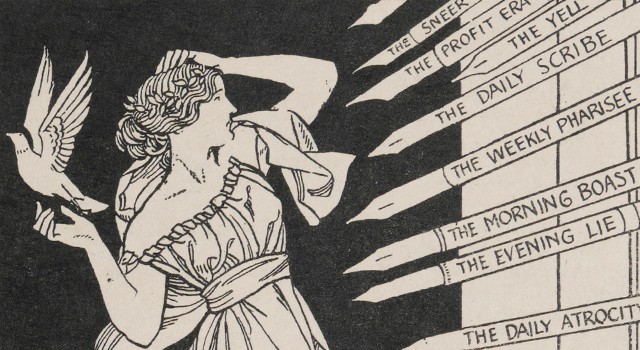
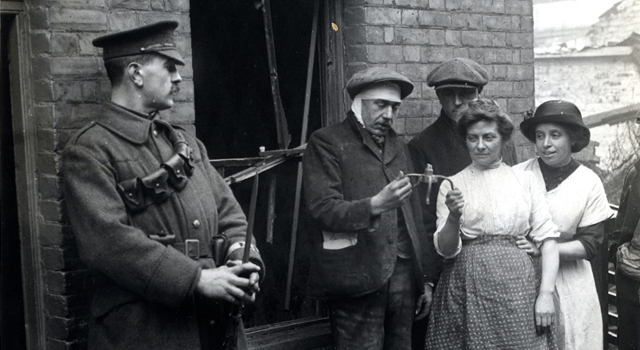
![Coroner's Report, 1916 [WAVE: T/CR/1916] Coroner's Report, 1916 [WAVE: T/CR/1916]](https://www.voicesofwarandpeace.org/wp-content/uploads/2014/08/t-cr_1916-1b-fi.jpg)
